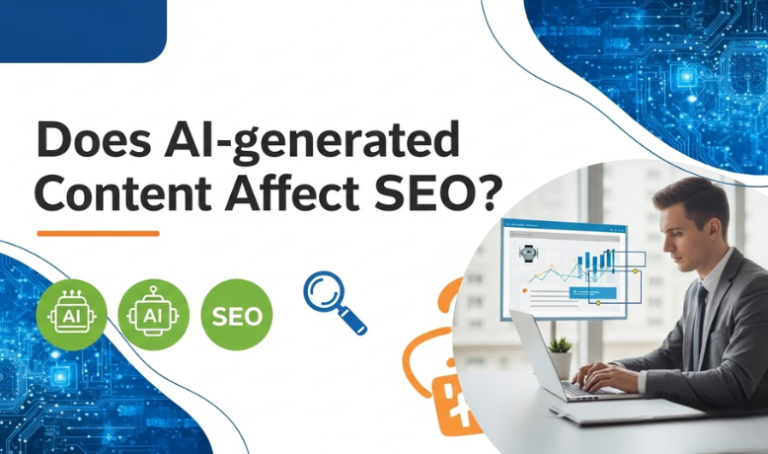Digital marketing is rapidly transforming, and at its core, content creation has become essential for attracting traffic and boosting search engine rankings. Over the past few years, artificial intelligence (AI) has revolutionized content creation, making generating high-quality text for websites, blogs, and social media easier and faster. AI-generated content, produced by sophisticated algorithms like GPT, can now mimic human writing, allowing businesses to scale their content production efficiently.
As SEO continues to evolve, marketers need to understand how AI-generated content can influence search engine rankings and whether it can be leveraged for better results. While AI offers numerous benefits—speed, cost efficiency, and scalability—its impact on SEO is still debated among industry experts.
Table of Contents
ToggleWhat is AI-Generated Content?
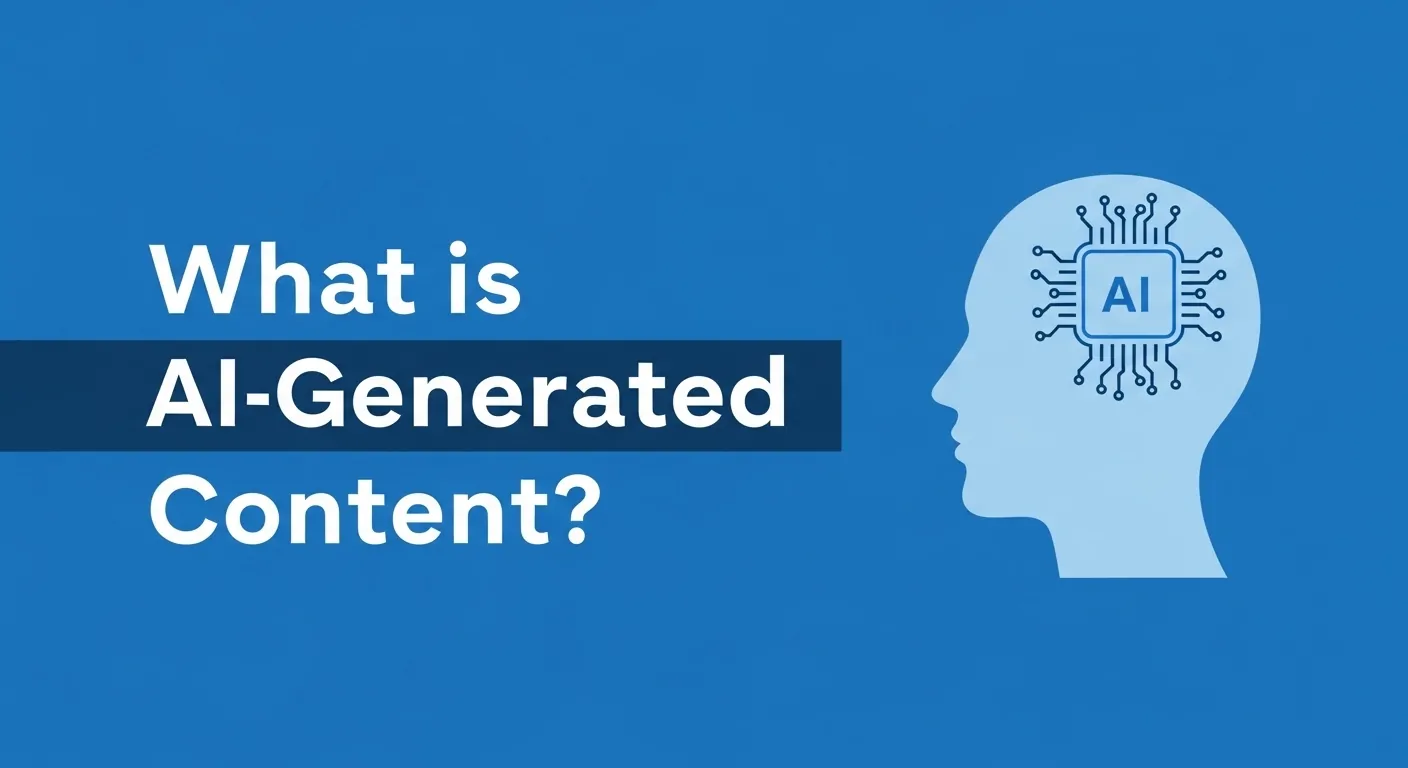
AI-generated content refers to text created using artificial intelligence tools and algorithms, such as natural language processing (NLP) models, capable of producing human-like writing. These tools, powered by machine learning, analyze vast amounts of data to understand language patterns, grammar, context, and nuances. As a result, they can generate text that resembles what a human might write, whether it’s articles, blog posts, product descriptions, social media updates, or even poetry.
Today’s most common form of AI-generated content comes from advanced language models like OpenAI’s GPT series, which can craft coherent and contextually relevant text based on a simple prompt. These AI systems are trained on vast datasets, including books, websites, and other textual resources, enabling them to produce written content on various topics.
How AI Content is Created:
- Input or Prompts: The AI begins by receiving input from the user, such as a keyword, phrase, or question.
- Data Processing: Using pre-trained models, the AI analyzes patterns in the input and generates relevant responses based on the context it has learned.
- Output Generation: The AI produces output in the form of readable and coherent text, which can be refined further through editing if necessary.
Applications of AI Content:
- Blog Posts & Articles: AI can produce high-quality blog posts and articles on various topics, saving content creators time and effort.
- Product Descriptions: E-commerce businesses use AI to generate bulk product descriptions that are consistent and SEO-friendly.
- Social Media Content: AI tools can automatically generate posts for social media platforms with relevant hashtags and engaging language.
- Emails & Newsletters: AI assists in crafting personalized email campaigns to engage customers and promote products.
Does AI Written Content Affect SEO?
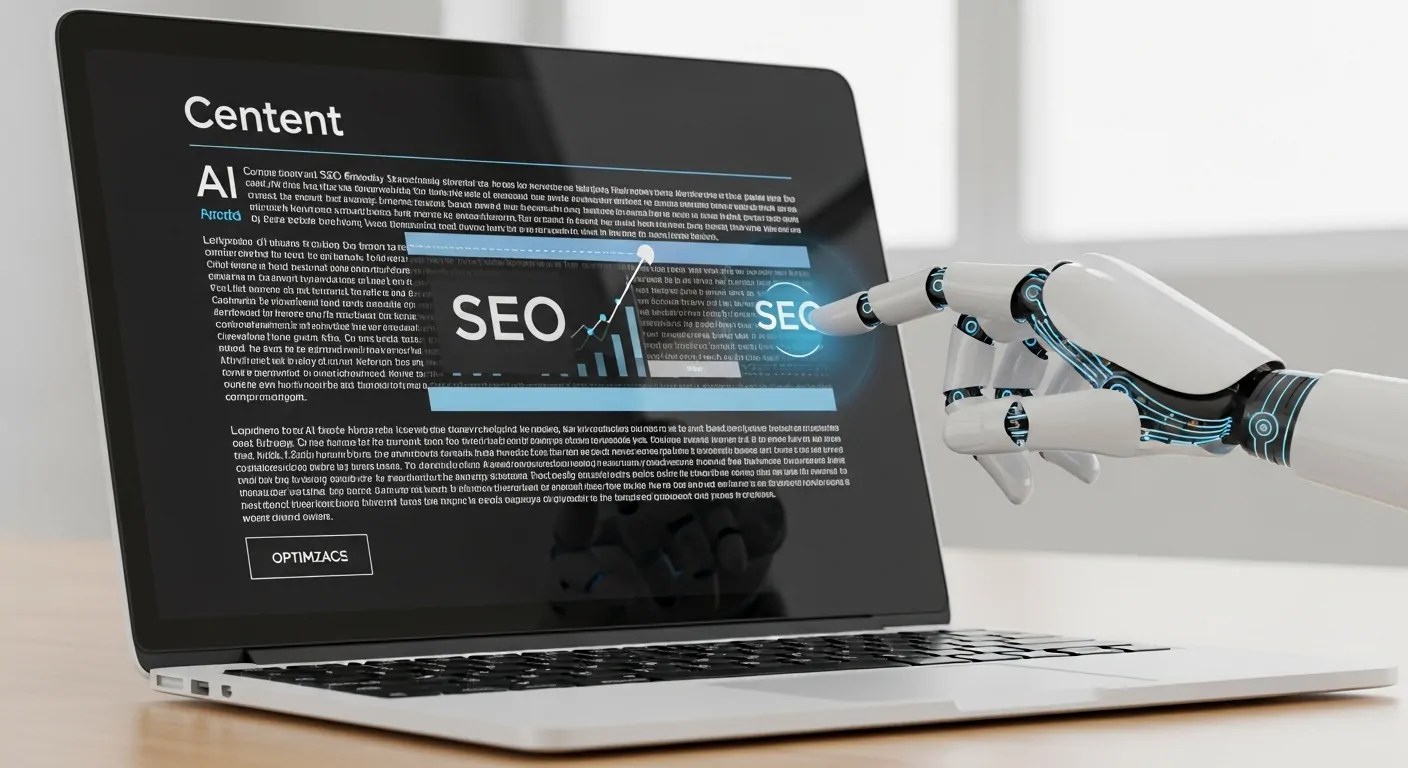
The central question surrounding AI-generated content is its impact on SEO. In an age where search engines prioritize high-quality, relevant, and engaging content, can AI-written material boost or hinder SEO performance? The short answer is that AI-generated content can affect SEO, but the degree to which it does depends on how the content is created and utilized.
How AI-Generated Content Can Impact SEO:
- Keyword Optimization:
AI tools can analyze and optimize content for specific keywords, helping businesses improve their chances of ranking for those terms. These tools can suggest the most relevant keywords based on search volume and competition, ensuring the content is aligned with what users are searching for. However, the challenge is ensuring that AI doesn’t over-optimize content by stuffing keywords unnaturally, which can lead to penalties from search engines.
- Content Relevance and Quality:
AI content generation can create material that is both relevant and aligned with user search intent. For example, AI can be trained to create content that answers specific questions or solves particular problems, which is vital for SEO. However, content quality remains a concern. While AI can produce grammatically correct text, it might lack the depth, originality, and nuance that human-created content offers. Search engines like Google are increasingly prioritizing content that provides real value to users, and generic AI-generated text might fall short in this area.
- Engagement and User Interaction:
Well-crafted AI-generated content can effectively engage users, leading to longer time on site, more interactions, and lower bounce rates—all of which are positive ranking factors for SEO. However, poorly generated or overly generic AI content may fail to engage users, resulting in poor performance metrics that negatively affect rankings.
- Freshness and Volume of Content:
AI’s ability to produce large volumes of content quickly can be beneficial for SEO, especially in industries that require frequent updates or new content. Regularly updated content can improve a website’s relevance and authority in the eyes of search engines, as fresh content is often prioritized in rankings. But without proper quality checks, an overload of AI-generated content can dilute the website’s value if the material doesn’t provide real value to readers.
- Google’s Algorithm:
Google’s algorithm continues to evolve, and advancements in machine learning have improved its ability to distinguish high-quality content from low-quality content. Google doesn’t specifically penalize AI-generated content but prioritizes content that aligns with its guidelines, focusing on E-A-T (Expertise, Authoritativeness, and Trustworthiness). AI-generated content that fails to meet these criteria might perform poorly in rankings due to lacking depth or real human expertise.
Advantages of AI Content for SEO
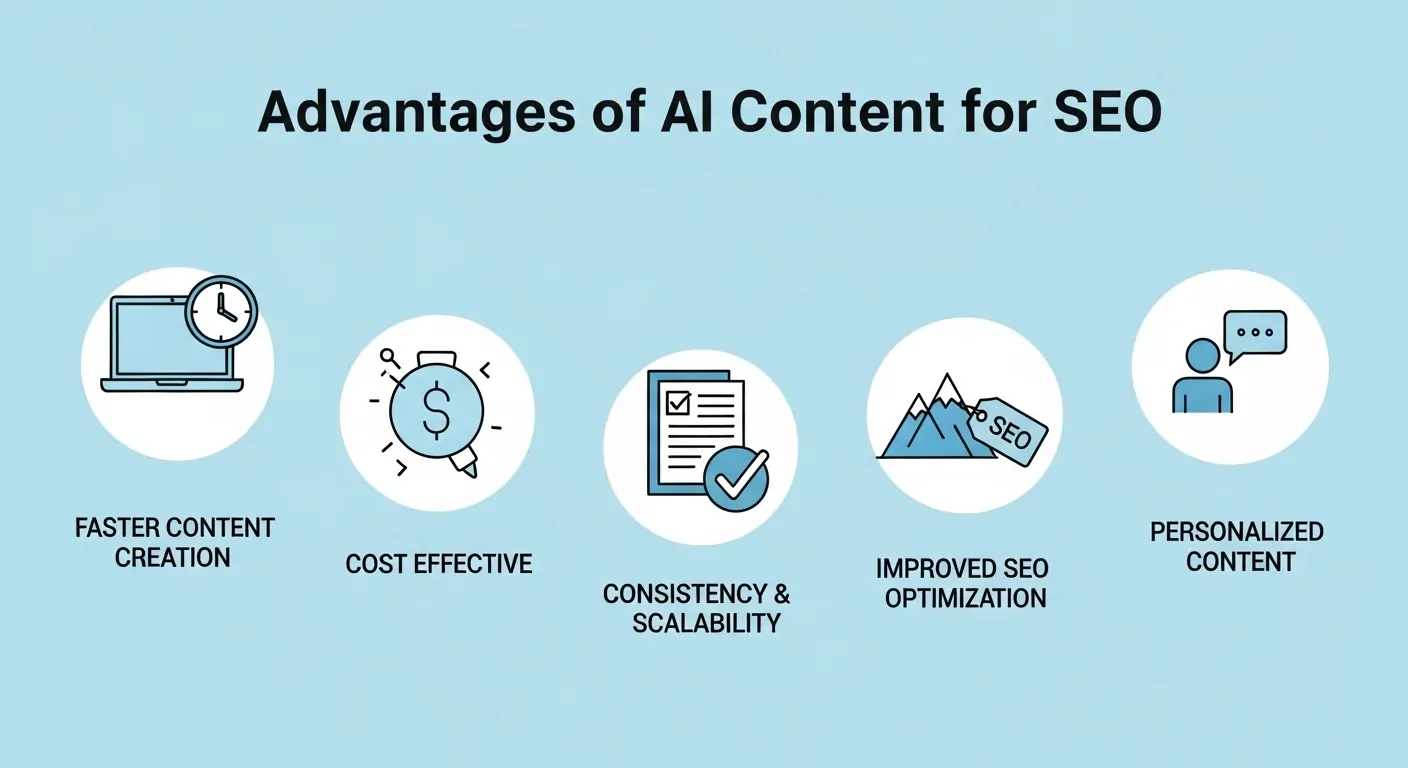
AI-generated content offers several benefits for SEO, making it an attractive option for businesses looking to improve their online visibility. Here are some of the key advantages:
Faster Content Creation
AI can significantly speed up the content creation process. Instead of spending hours or days writing content manually, AI tools can produce articles, blog posts, and product descriptions in a fraction of the time. This enables businesses to scale their content production and meet the demands of frequent updates or large-scale content strategies.
Cost-Effective
Hiring a team of writers for ongoing content production can be expensive. With AI, businesses can reduce the need for extensive human labor, making content creation more affordable. AI-generated content can serve as a cost-effective solution, especially for tasks like writing basic articles or descriptions.
Consistency and Scalability
AI can maintain consistency in tone, style, and formatting across large volumes of content. This ensures that all content on a website follows the same guidelines and is aligned with SEO best practices. Whether you need a hundred product descriptions or several blog posts per week, AI can scale the content production process without compromising quality.
Improved SEO Optimization
AI tools are often designed with SEO in mind. They can suggest relevant keywords, optimize content structure, and ensure proper keyword density. This helps ensure that the content is more likely to rank well in search engines. AI can also assist with on-page SEO elements like meta descriptions, header tags, and internal linking.
Personalized Content
AI can analyze user behavior and preferences to generate highly personalized content. Businesses can improve engagement and relevance by tailoring content to specific audience segments, positively influencing SEO rankings.
Google’s Stance on AI Content
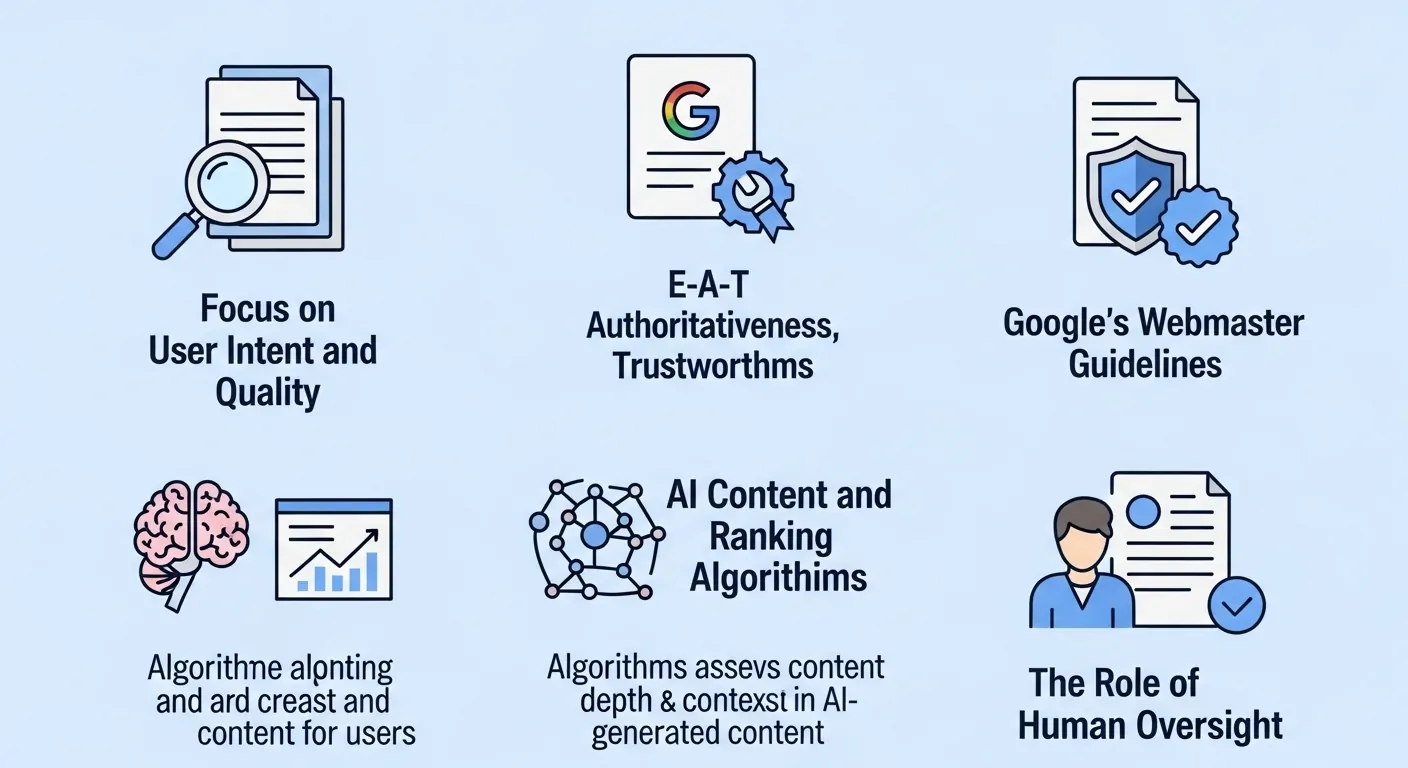
Google’s approach to AI-generated content has evolved, as it continues to refine its algorithms to focus on content quality, user experience, and relevance. While Google doesn’t explicitly ban AI-generated content, it has guidelines that content must adhere to to rank well. Here’s how Google views AI-generated content concerning SEO:
Focus on User Intent and Quality
Google’s primary goal is to deliver to users the most relevant, helpful, and high-quality content. AI-generated content can rank well if it meets these criteria. However, if the content is produced solely to manipulate rankings (e.g., through keyword stuffing or low-quality writing), it’s less likely to perform well in search results. Google’s algorithms are increasingly able to detect content that serves user intent rather than just optimizing for search rankings.
E-A-T (Expertise, Authoritativeness, and Trustworthiness)
Google emphasizes the importance of E-A-T (Expertise, Authoritativeness, and Trustworthiness) in content. AI-generated content often lacks deep expertise or original insights and can struggle to meet these standards. Google values content that demonstrates authority on a topic, which is why human involvement in content creation is essential, especially in technical or niche subjects requiring specialized knowledge.
Google’s Webmaster Guidelines
According to Google’s Webmaster Guidelines, content should be created primarily for users, not search engines. AI-generated content created solely for the purpose of ranking in search engines—without considering users’ needs—may fall into the category of “spammy” content. Google encourages content creators to focus on providing value to readers, with AI tools acting as a complement to, rather than a replacement for, thoughtful content creation.
AI Content and Ranking Algorithms
Google’s algorithms, including RankBrain and BERT, are designed to understand content’s context and intent, not just the keywords. AI-generated content that lacks context, depth, or the subtlety that a human writer can provide may fail to align with these algorithms, causing it to rank lower than high-quality, human-written content. Google also looks at engagement metrics, so if AI content fails to keep users engaged, it could result in poor rankings.
The Role of Human Oversight
To align with Google’s guidelines, humans should always review and edit AI-generated content. Ensuring that AI content maintains quality, relevance, and expertise is key to improving its SEO performance. While AI can assist with content generation, human editors are crucial for making the content more authentic, engaging, and aligned with user intent.
Conclusion
AI-generated content can enhance SEO by enabling faster creation, scalability, and effective keyword optimization. However, it must be combined with human oversight to maximize its benefits to ensure quality, originality, and relevance, avoiding issues like keyword stuffing or duplicate content. By focusing on user intent, aligning with Google’s E-A-T guidelines, and regularly updating content, businesses can leverage AI to improve SEO rankings while maintaining the authenticity and value needed for long-term success. Balancing AI’s efficiency with human creativity is key to a sustainable and effective SEO strategy.

